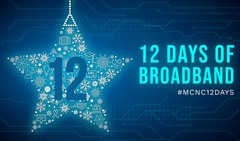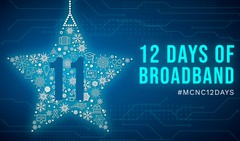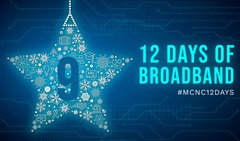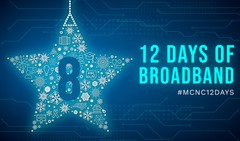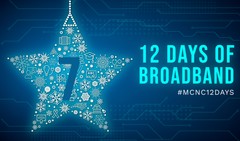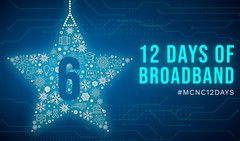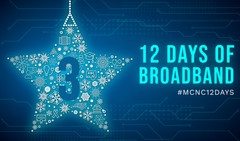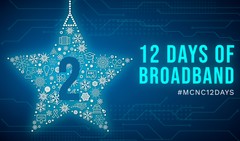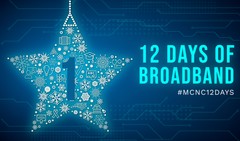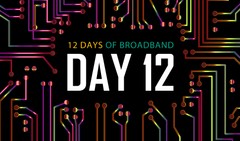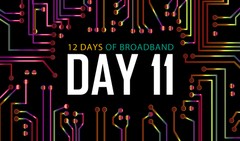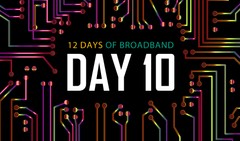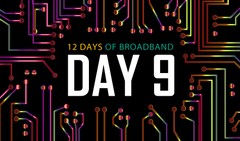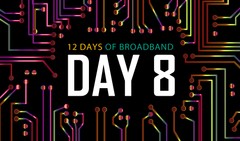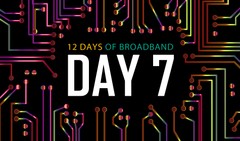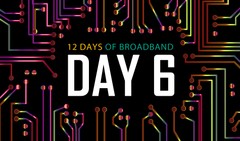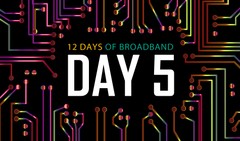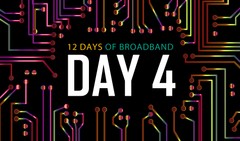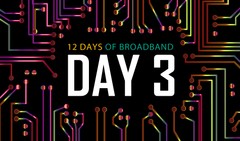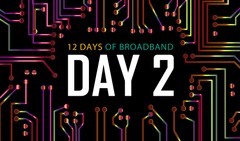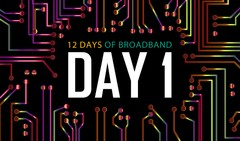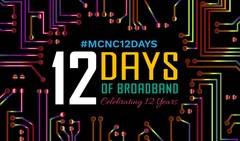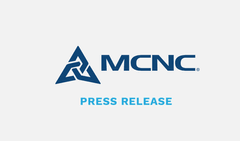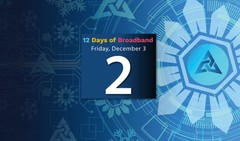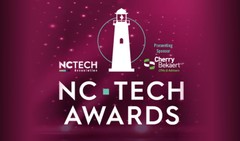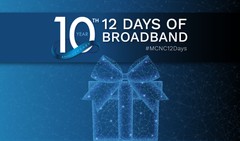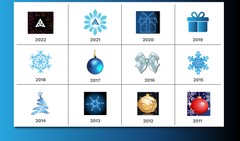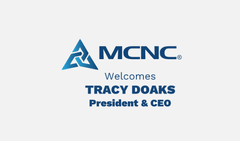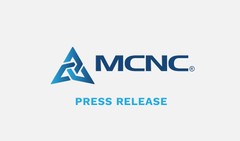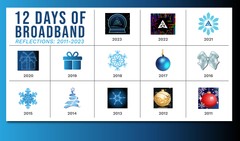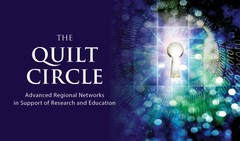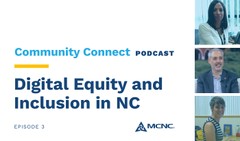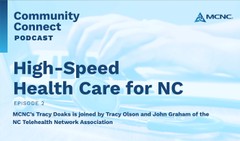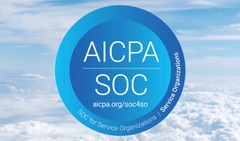Day 10: North Carolina’s high-speed foundation for K-12 education
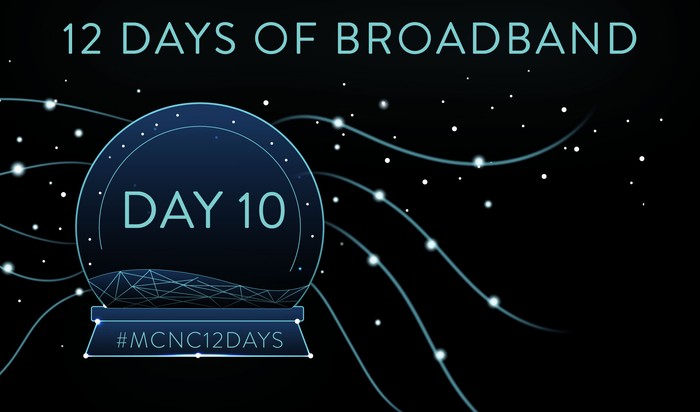
In 1985, MCNC was one of the first organizations in the nation to create a statewide research and education network, supporting the entire technology ecosystem of high-functioning internet and network connectivity throughout North Carolina. Our network today now spans more than 4,400 miles, which helps students anywhere, anyplace, anytime be online while at school or at a library while also giving local economies the ability to thrive with an educated and connected workforce.
NC’s ISP for Education
There are approximately 2,752 public schools in North Carolina with an estimated 1.5 million students. North Carolina boasts an overall graduation rate of 86.4 percent, above the national average. North Carolina also has diverse educational options besides public schools, offering various educational options including charter schools, private schools, and homeschooling. While schools have access, some students may not have reliable internet at home. Estimates suggest that at approximately 30 percent of students in North Carolina lack a reliable connection for remote learning while another 23 percent of students simply lack adequate devices for remote learning.
MCNC is as a valuable technology resource and partner for K-12 education in North Carolina. Our work-class network and operational expertise supports broadband connectivity for all 115 K-12 public school districts in North Carolina, more than 130 charter schools, and a growing number of K-12 private schools (which is roughly another 8 percent of K-12 schools serving another 124,000 students). Each are increasingly integrating broadband-dependent technologies, cybersecurity and other value-added services into curriculum and administration as reliable high-speed access continues to rise for students, faculty and staff both on and off campus. These education institutions use three times the bandwidth now than just three years ago, and MCNC continues to grow right with them.
SCI Success is Undeniable
North Carolina’s K-12 education institutions are pillars in our communities. Interconnecting all these schools with MCNC’s network is the product of the N.C. School Connectivity Initiative (SCI).
 Established in 2007, the SCI has expanded the number of schools with broadband internet access, further developed communication networks for rural and under-performing schools, aided in professional development for technology staff, and developed a scalable model to maintain and enhance network services to all schools in North Carolina. All 115 K-12 public school districts initially were connected to our network in 2009 through the SCI. Since inception, MCNC has been responsible for providing two services of the SCI: Connectivity and Client Network Engineering, which provides engineering support for network assessments to help with designs and approaches for contemporary school networks. The fast implementation and success of the SCI over the years was achieved through collaboration among many public/private partnerships forged throughout the state and has improved educational outcomes in all 100 counties. With the successful renewal of our K-12 connectivity services and the addition of managed firewall and endpoint protection services, these anchor institutions across our education community continue to have reliable, secure and high-performance connectivity, fostering a conducive learning environment for students and empowering educators with the tools they need to deliver high-quality education.
Established in 2007, the SCI has expanded the number of schools with broadband internet access, further developed communication networks for rural and under-performing schools, aided in professional development for technology staff, and developed a scalable model to maintain and enhance network services to all schools in North Carolina. All 115 K-12 public school districts initially were connected to our network in 2009 through the SCI. Since inception, MCNC has been responsible for providing two services of the SCI: Connectivity and Client Network Engineering, which provides engineering support for network assessments to help with designs and approaches for contemporary school networks. The fast implementation and success of the SCI over the years was achieved through collaboration among many public/private partnerships forged throughout the state and has improved educational outcomes in all 100 counties. With the successful renewal of our K-12 connectivity services and the addition of managed firewall and endpoint protection services, these anchor institutions across our education community continue to have reliable, secure and high-performance connectivity, fostering a conducive learning environment for students and empowering educators with the tools they need to deliver high-quality education.
Vital Work in K-12 Cybersecurity
MCNC Vital Cyber is leading cybersecurity services for all K-12 education in North Carolina, currently protecting more than 200,000 endpoint devices for more than 160 customers throughout the state.
Over the past year, MCNC has expanded our collaboration with the North Carolina Department of Public Instruction (NCDPI) and the North Carolina Department of Information Technology (NCDIT) to launch our new Managed Firewall service specifically designed for K-12 schools. Our dedicated team has successfully migrated 233 Public School Units, or PSUs, to this service since last year, providing comprehensive firewall protections that ensure the security and integrity of these important networks. Additionally, our Managed Endpoint Protection service has been warmly embraced by K-12 institutions with more than more than 158 PSUs now enrolled. These are indispensable tools in minimizing the risk of cyberattacks within our education community.
Community of Collaboration and Commitment
MCNC has and continues to support many other educational efforts and initiatives.
In the late 2000s, the N.C. STEM Community Collaborative was born from MCNC. Now known as the NC STEM Center, it is managed by the N.C. Science, Mathematics, and Technology (SMT) Center through the Burroughs Wellcome Fund. MCNC also supports the N.C. Business Committee for Education’s Students@Work and Teachers@Work programs, which provides MCNC an opportunity to help students, teachers, and principals prepare for the future by offering job shadowing and other experiences to bridge the school environment to the workplace. MCNC periodically offers summer internships for students to learn more about day-to-day operations while also providing training and professional development opportunities for our community throughout the year such as the Summer Institutes, CeCTO, of course MCNC Community Day every other year.
Meeting Today’s Demands for Tomorrow
MCNC helps create innovative learning environments for students of all ages and levels of education. MCNC is proactive to the needs of our education community by providing high-speed connections and leading-edge technology services that enhance the digital learning experience. This level of connectivity will develop new ideas, support greater educational attainment, and build a better and more prepared workforce.
MCNC gives our great minds of today the ability to do amazing things tomorrow, and we are proud to serve these pillars of education in our communities by meeting their bandwidth and technology needs now and for the foreseeable future. View our K-12 Utilization Map.
Return to the 13th annual 12 Days of Broadband >>>

